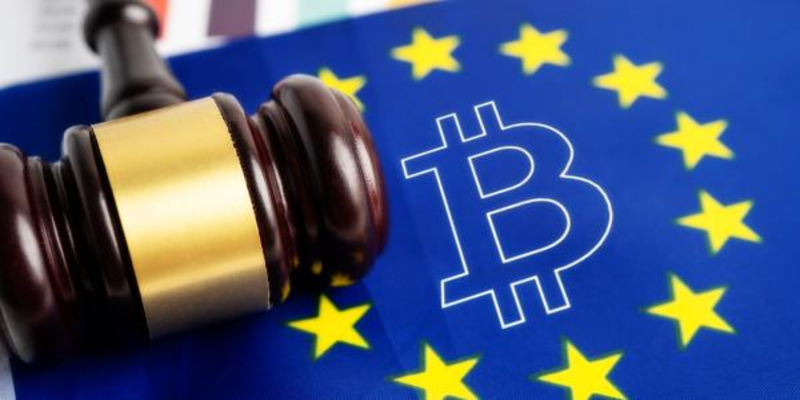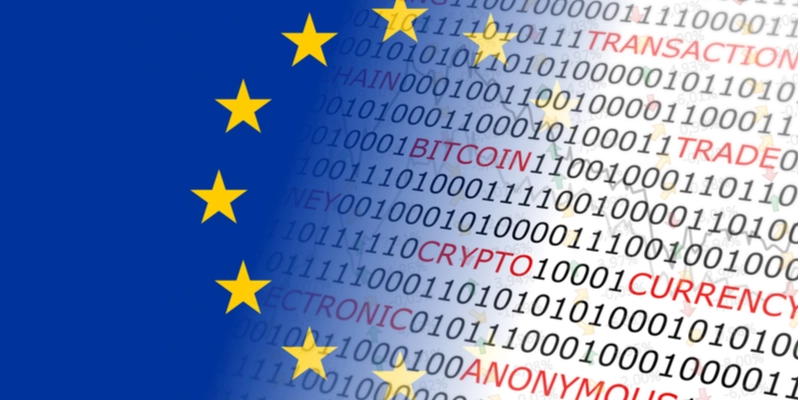MiCA Crypto Regulation
MiCA is an important EU initiative overseeing crypto asset markets. It aims to balance innovation with rules, promoting integrity, protection, and stability. MiCA crypto regulation article overviews Markets in Crypto-Assets objectives and how it could impact the future of crypto markets globally.
We’ll explore MiCA’s key components and implications, showing its potential to create financial regulation and a safer digital financial system. Dive into MiCA with us to understand its importance.
Table of content
Goals of MiCA Crypto Regulation
MiCa has several goals that are explained below:
Consumer and Investor Protection
MiCA focuses on protecting consumers and investors participating in the crypto-asset market. It establishes rules for crypto-asset service providers (CASPs) to ensure transparency, fair treatment, and mitigation of risks like market manipulation.
Financial Stability
The Markets in MiCA Crypto Assets regulation aims to minimize potential threats to financial stability from crypto-assets. This includes measures to address money laundering and terrorist financing risks associated with some cryptocurrencies.
Innovation
Despite regulations, MiCA strives to create innovation within the crypto-asset space. It provides legal certainty for businesses operating in this field, encouraging responsible market growth.
Pros and Cons
Here’s a quick rundown of MiCA’s pros and cons:
| Pros | Cons |
| ✅ Protects users with clear info and complaint channels | ❌ Regulations might be complex and expensive for some businesses |
| ✅ Reduces money laundering and market manipulation risks | ❌ MiCA’s approach may differ from other regions, causing confusion |
| ✅ Provides clear rules to encourage responsible development | ❌ The framework might need updates to keep pace with growing technology |
Scope of MiCA
MiCA’s scope is extremely important in defining which entities and activities fall under its regulatory umbrella. It has two key components to cover:
Crypto-Assets
Market in Crypto Assets MiCA takes a comprehensive approach, aiming to capture a wide range of crypto-assets not already regulated by existing EU financial services legislation. This means it goes beyond just cryptocurrencies like Bitcoin and Ethereum, used for sports betting.
While the exact classification system is still under development, MiCA is likely to take upon three main categories of crypto-assets:
Asset-Referenced Tokens
These tokens derive value from external assets, such as commodities (gold-backed tokens) or fiat currencies (stablecoins pegged to the Euro or US Dollar).
E-money Tokens
These tokens function similarly to electronic money, representing a claim on a centrally held fiat currency reserve. They are typically pegged to a single fiat currency and designed for payments.
Other Tokens
This category includes a wide variety of tokens with functionalities, such as utility tokens that provide access to a service or platform.
It’s important to note that MiCA does not apply to all crypto-assets. Some exemptions exist, such as:
Security Tokens
These tokens represent ownership or rights in an underlying asset, similar to traditional securities. They are already regulated under existing EU financial market legislation.
Central Bank Digital Currencies (CBDCs)
If and when the EU launches its own CBDC, it will likely be subject to separate regulations tailored for central bank money.
Unique Non-Fungible Tokens
Truly unique NFTs , also used for betting, may fall outside MiCA’s scope as they don’t necessarily represent fungible units of value. However, the definition of a “unique” NFT is still being discussed.
Crypto-Asset Service Providers (CASPs)
MiCA focuses on regulating the activities of entities providing services related to crypto-assets. Here’s a closer look:
Determining whether a crypto-asset or service falls under MiCA’s scope can be complex. For a more nuanced understanding, consulting with legal professionals specializing in EU financial regulations and blockchain technology is advisable.
Key Provisions of MiCA
MiCA establishes a comprehensive framework for regulating crypto-assets in the European Union.
Here’s a detailed overview of its key provisions that aim to protect consumers, maintain financial stability, and encourage responsible innovation:
Licensing Requirement
CASPs seeking to operate within the EU must obtain authorization from a National Competent Authority (NCA) in the member state where they are established. This authorization process assesses the CASP’s operational capacity, risk management measures, and compliance procedures.
NCAs Role
National Competent Authorities supervise authorized CASPs to ensure adherence to Markets in Crypto Assets MiCA regulation. This includes ongoing monitoring, on-site inspections, and potential enforcement actions for non-compliance.
Passporting System
Once a CASP is authorized by an NCA in one EU member state, they can passport their services to other member states through a notification process. This simplifies operations for CASPs seeking to offer services across the EU.
Consumer and Investor Protection Measures
Disclosure Requirements
CASPs must provide consumers with clear and comprehensive information about the services they offer, the associated risks, and the fees involved. This includes information on the underlying assets for asset-referenced tokens, the issuer of the token, and potential price volatility.
Marketing and Advertising
MiCA regulates the marketing and advertising of crypto-assets to ensure fair, clear, and non-misleading communication. This aims to prevent misleading claims or overpromising returns on crypto-asset investments.
Complaint Handling Procedures
CASPs must establish clear and accessible complaint handling procedures for consumers who encounter issues with their services. This ensures a mechanism for resolving disputes and addressing consumer concerns.
Anti-Money Laundering/Combating the Financing of Terrorism (AML/CFT)
Customer Due Diligence (CDD)
CASPs are required to implement robust Customer Due Diligence (CDD) measures to identify and verify their clients. This includes collecting KYC (Know Your Customer) information and assessing the money laundering and terrorist financing risks associated with each customer.
Transaction Monitoring
MiCA mandates ongoing monitoring of client transactions to identify suspicious activity that may be linked to money laundering or terrorist financing. This helps to deter criminals from using crypto-assets for illicit purposes.
Suspicious Activity Reporting (SAR)
CASPs are obligated to report any suspicious activity detected to the relevant authorities. This facilitates investigations and helps to track down criminal activity involving crypto-assets.
Market Abuse Prohibition
Market Manipulation
MiCA prohibits market manipulation practices related to crypto-assets. This includes activities like insider trading, disseminating false or misleading information, and wash trading (creating artificial volume through self-dealing).
Insider Trading
MiCA prohibits insiders with access to non-public information from using that information to gain an unfair advantage in the crypto-asset market.
Market Abuse Detection
CASPs are expected to have systems in place to detect and prevent market abuse activities on their platforms.
Environmental Disclosures
Transparency on Environmental Impact
MiCA introduces a requirement for CASPs to disclose information on the environmental impact of the crypto-assets they offer. This is a novel aspect of crypto-asset regulation and may be further defined in future MiCA implementing measures.
Sustainability Considerations
The emphasis on environmental disclosures reflects growing concerns about the energy consumption of certain Proof-of-Work blockchain protocols some cryptocurrencies use.
MiCA Crypto Regulation FAQ
⭐ What does MiCA Crypto stand for?
MiCA stands for Markets in Crypto-Assets.
⭐ What is MiCA Crypto Regulation?
The goal of MiCA markets in crypto assets regulation is to reduce the risk for individuals using cryptocurrency by holding blockchain and cryptocurrency providers responsible for any loss of assets experienced by their customers.
⭐ Why Crypto regulation is bad?
Imposing stricter regulations will come with immediate drawbacks: it will prevent some promising projects from securing funds through the unregulated ICO model, and it will once again limit the ability of less affluent investors to invest in early-stage ventures due to accreditation requirements.
⭐ What happens if cryptocurrency is regulated?
The cryptocurrency market will remain highly unpredictable and risky despite the new regulations. However, the rules may help prevent people from falling for manipulative advertising and give them repeated warnings about the risks of investing in crypto.
⭐ Is Markets in Crypto Assets MiCA approved by the EU?
✅ On Thursday, April 20th, 2023, the EU Parliament passed the Markets in Crypto Act or MiCA EU regulation. The MiCA legislation aims to decrease consumer risks when purchasing crypto assets, holding providers accountable if they lose investors’ crypto assets.
⭐ Where can I find the best crypto sports betting sites in compliance with MiCA Crypto Regulation?
You can find the best crypto sports betting sites that comply with MiCA Crypto Regulation by conducting thorough research and ensuring they are licensed and regulated by reputable authorities. Additionally, look for platforms that prioritize transparency, fair treatment of users, and robust security measures to protect your funds and personal information.
MiCA and Global Crypto Rules
Here’s a simple breakdown of how MiCA impacts companies outside the EU that deal with cryptocurrencies:
Dealing with EU Customers
If a company from outside the EU wants to work with customers from the EU, it must follow MiCA’s rules. Regulation makes it easier for companies to work across different EU countries, but this might not apply to companies from outside the EU. This could make it harder for them to enter the market.
Extra Costs
Companies from outside the EU might have to spend more money to meet MiCA’s standards if they want to serve EU customers.
Different Rules Around the World
Varying Standards
Each region might have its own rules for cryptocurrencies, which can make things complicated for companies operating internationally.
Seeking Easier Rules
Companies might choose to work in places with fewer rules to avoid MiCA’s strict requirements, which can lead to risks and concerns about uneven standards.
Working Together Globally
Countries might need to work together to create consistent rules for digital currencies worldwide, making it easier and clearer for companies to operate internationally.
Impact on International Cooperation
AML/CFT Collaboration
MiCA’s emphasis on anti-money laundering measures may drive increased cooperation between EU and non-EU authorities in combating financial crime.
Information Sharing
Effective cross-border regulation may require enhanced data sharing, prompting considerations about privacy and the necessity for robust international agreements.
Global Standards
MiCA’s implementation could contribute to global standards for crypto regulation, promoting stability and uniformity in the global market.
While promoting stability and consumer protection within the EU, it also underscores the need for global regulatory alignment and cooperation. By addressing these implications, stakeholders can work towards a more coordinated and efficient global regulatory framework for crypto-assets, creating innovation while mitigating risks.
MiCA Implications for the Future
MiCA crypto regulation will greatly impact crypto-assets’ future in the EU by improving legitimacy and trust. It focuses on consumer protection and anti-money laundering, which could attract traditional financial players.
MiCA also offers clear regulations, encouraging transparency and innovation in the crypto space.
However, smaller providers may need help with compliance, and different rules across EU countries could cause problems. Despite challenges, MiCA aims to create a more mature and stable crypto ecosystem in the EU. Adapting to changing regulations will be essential as the global crypto landscape evolves.









